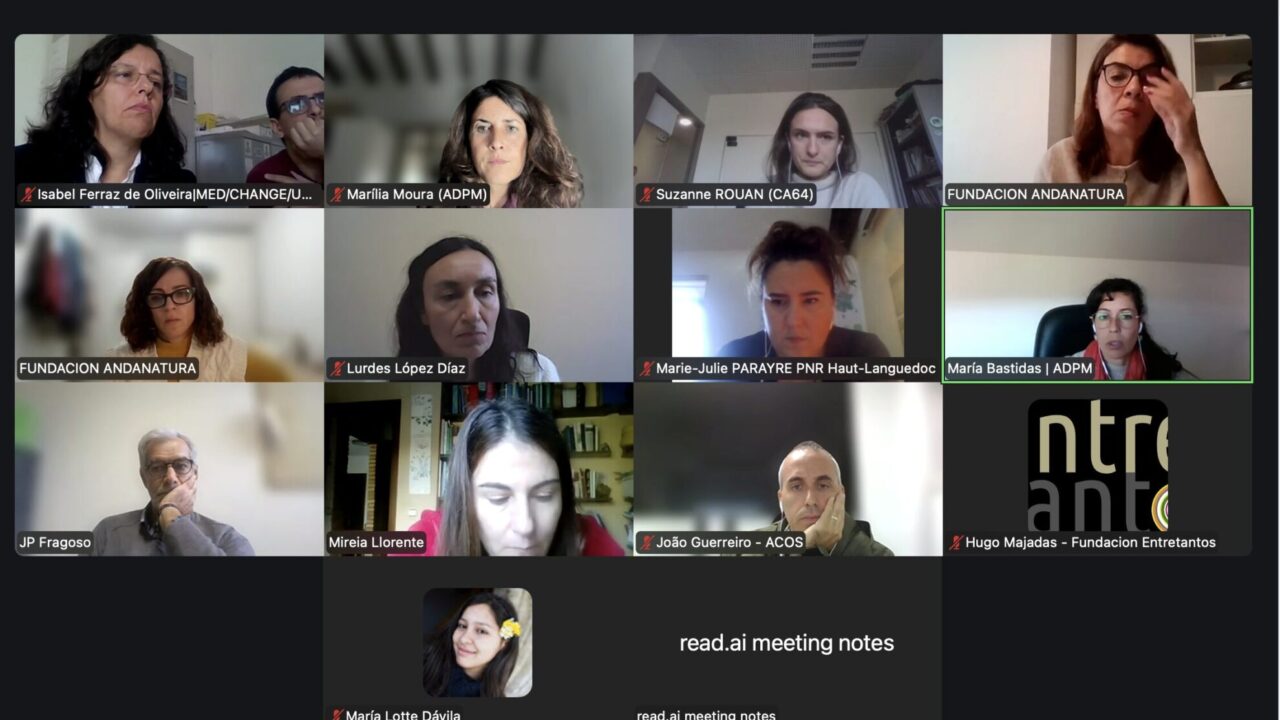The 4th partners’ meeting of the PASTONATUR project took place on November 17, under the coordination of the Andanatura Foundation team.
Among the various topics discussed, such as communication and leveraging synergies with entities from the involved territories (Alentejo, Andalusia, Castilla y León, Extremadura, Nouvelle-Aquitaine, Occitania), the meeting focused on defining common methodologies to assess the impact of livestock farms in the SUDOE area, with particular attention to those located in protected natural areas.
To characterize extensive livestock activity, a set of indicators was defined, centered on strategic axes such as biodiversity conservation, adaptation and resilience to climate change, carbon balance and other greenhouse gases, economic performance, and social impact.
In the field of climate mitigation, José Pedro Fragoso, a specialist from the Polytechnic Institute of Castelo Branco, invited by ADPM to present the methodology developed by the Extensive Grazing Competence Center, explained how to calculate the carbon balance of livestock farms. The animal production specialist highlighted that well-managed grazing systems can sequester more carbon dioxide than they emit, constituting important carbon sinks. He also advocated adopting methodologies that consider the animal production system as a “whole,” taking into account the interrelation between soil, pasture, animals, and atmosphere, allowing for a more integrated and rigorous assessment of grazing systems.
The Entretantos Foundation, for its part, presented the social methodology being developed to assess the impact of this type of project, analyzing knowledge, perceptions, and benefits associated with extensive grazing, as well as the factors that facilitate or constrain the transition to more sustainable practices. This work will help identify barriers, guide training actions, and adjust local intervention strategies.
Additionally, methodologies for evaluating biodiversity, the economy, and the adaptation of livestock farms will also be developed.
In the field of communication, the project’s new social media accounts were presented under the handle @pastonatur.sudoe (on Instagram and Facebook). A joint strategy proposal for the communication managers of each partner was also shared, aiming to ensure systematic information collection and compliance with the mandatory rules of the Interreg SUDOE program.
The next operational meeting of PASTONATUR partners is already scheduled for early December!

